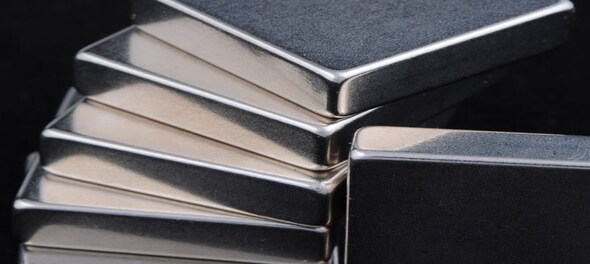
With an eye on boosting economic growth, Indonesia has laid out plans to convert its raw material exporting mining sector into one that processes commodities into ready-to-use products -- starting with nickel, which is used in lithium batteries for electric cars.
According to the country’s Minister of Investment Bahlil Lahadalia, 2022 will be the year of downstream industries in Indonesia. Downstream industries process raw materials into finished products to provide added value.
Focus on downstream industries, ban on exports
Despite being a mineral-rich country, the mineral and coal sector of Indonesia contributed only 5 percent to Indonesia’s GDP in 2019, CNBC reported, quoting data from the Extractive Industries Transparency Initiatives. The country has rich deposits of tin, nickel, cobalt and bauxite. Some of these elements are used as raw materials for electric vehicle production.
As part of the plan to develop downstream industries, the Indonesian government plans to explore areas with rare earth materials and also limit exports.
The Indonesian energy and mineral resources ministry has identified eight locations with rare earth reserves and plans to explore more areas up until 2024.
“All eight are still in the early exploration stage,” The Star quoted Mining Director General Ridwan Djamaluddin as saying.
Meanwhile, the country enacted a landmark nickel ore export ban in 2020 in a bid to force miners to develop nickel processing facilities. The government has pledged to gradually stop exporting other raw materials too.
“I think we can reap many benefits of stopping nickel ore export,” CNBC quoted President Jokowi Widodo as saying in 2021, adding that the country would stop raw materials export for bauxite ore next year, followed by gold and tin ores.
How will it benefit Indonesians?
With the push to downstream industries, the Indonesian government expects to generate more jobs, increase profit margins of the sector and cut down on carbon emissions. It will also help navigate fluctuating commodity prices and bring down the dependence on imports.
Nickel in electric cars
Indonesia possesses 21 million tonnes of nickel, the largest nickel reserve in the world, according to the country’s Investment Coordinating Board, BKPM.
The country hopes to use the raw nickel to produce lithium batteries for electric cars, a move that will eventually bring economic growth.
In late 2020, President Widodo said the government was working on lithium-ion battery innovations and it was expected that the country would start producing batteries in 2-3 years.
As Indonesia is a key resource base for nickel, the country’s production outlook would “drive the pace and scale of decarbonising the transportation sector internationally,” CNBC quoted Wood Mackenzie analyst Shirley Zhang as saying.



